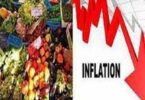NEW YORK (Reuters): The World Bank’s latest report forecasts that global oil prices could up to $140 to $157 a barrel in case of a “large disruption” scenario in the Middle East, resembling the impact of the 1973 Arab oil embargo.
The report read that global oil prices will average around $90 a barrel in the fourth quarter of this year and decrease to an average of $81 in 2023 due to slowing economic growth, which reduces demand for oil. However, the report also highlights a significant risk that an escalation of the ongoing Middle East conflict could cause a substantial spike in oil prices.
The report points out that since the start of the Israel-Hamas war, oil prices have increased by only about 6%, whereas prices for agricultural commodities, most metals, and other commodities have seen minimal changes. The report discusses three risk scenarios based on historical conflicts in the region, with varying degrees of disruption. In the event of a “small disruption,” equivalent to the reduction in oil output observed during the 2011 Libyan civil war (about 500,000 to 2 million barrels per day), oil prices could rise to a range of $93 to $102 a barrel in the fourth quarter.
A “medium disruption,” roughly equivalent to the Iraq war in 2003, could lead to a reduction of global oil supplies by 3 million to 5 million barrels per day, resulting in prices between $109 and $121 per barrel. The “large disruption” scenario, resembling the impact of the 1973 Arab oil embargo, would reduce global oil supply by 6 million to 8 million barrels per day, initially causing prices to jump to $140 to $157 a barrel, an increase of up to 75%.
The report also highlights the potential consequences of sustained high oil prices, including higher food prices, particularly in developing countries. It further notes that China’s oil demand remained surprisingly robust, despite challenges in the country’s real estate sector, with a 12% increase in the first nine months of 2023 compared to the same period in 2022.
The report mentions that oil production and exports from Russia have remained relatively stable, even with Western-imposed embargoes on Russian crude due to the Ukraine conflict. It notes a shift in Russia’s crude oil exports from Western countries to China, India, and Turkey, which has partially compensated for the decline in Western exports.
The report also discusses the challenges of enforcing a price cap on Russian crude oil introduced in late 2022. The cap, which aims to restrict the use of Western-supplied services for Russian crude above a certain price, has been breached due to Russia’s trading methods. In conclusion, the World Bank emphasises the potential impact of an escalation of the Israel-Hamas conflict on global oil prices and advises policymakers in developing countries to prepare for the possibility of increased inflation. It also encourages governments to avoid trade restrictions like export bans on food and fertilizer, as these can exacerbate price volatility and food insecurity.







